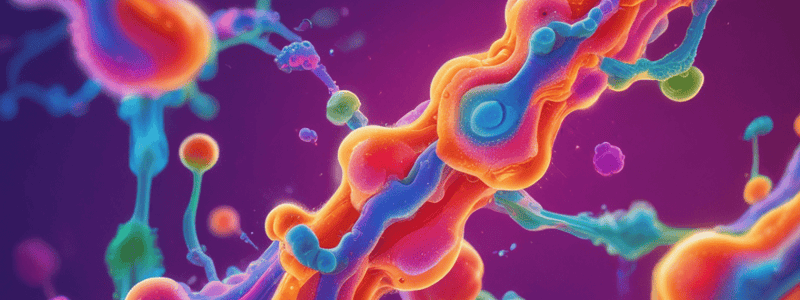Podcast
Questions and Answers
What are the typical outcomes when a hormone binds to its receptor?
What are the typical outcomes when a hormone binds to its receptor?
- Change in membrane permeability, alteration of reaction rates, or production of a new molecule (correct)
- Increase in cellular volume, activation of all enzymes, or halting gene expression
- Stimulation of cell division, reduction in transport proteins, or degradation of proteins
- Enhancement of receptor number, decrease in reaction rates, or production of lipids
How does a change in membrane permeability typically affect cellular functioning?
How does a change in membrane permeability typically affect cellular functioning?
- Leads to immediate cell death by disrupting the membrane structure
- Controls the entry or exit of substances by adjusting transport protein numbers (correct)
- Boosts protein production by altering mitochondrial function
- Triggers uncontrolled cell division by increasing membrane rigidity
What is the primary mechanism through which altering reaction rates by hormones affects cellular processes?
What is the primary mechanism through which altering reaction rates by hormones affects cellular processes?
- Increasing or decreasing gene expression levels
- Promoting or inhibiting cell division through membrane signaling
- Activating or deactivating enzymes involved in metabolic reactions (correct)
- Directly binding to DNA to control protein synthesis
In what way can the production of a new molecule by hormones influence cellular activities?
In what way can the production of a new molecule by hormones influence cellular activities?
Which activity can be altered by hormones and affect cardiac and smooth muscle function?
Which activity can be altered by hormones and affect cardiac and smooth muscle function?
Why do different target cells respond differently to the same hormone?
Why do different target cells respond differently to the same hormone?
Flashcards are hidden until you start studying



